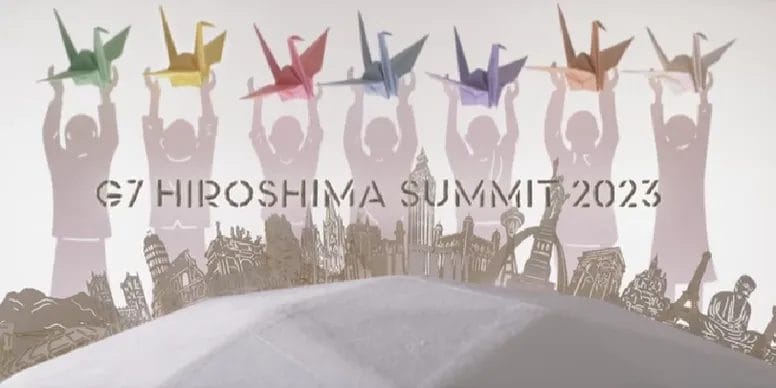
There will be a G7 summit in Hiroshima this week, where world leaders will meet to discuss the most topical issues of the moment. There is no shortage of subject matters for them to focus on. The elections in Turkey have shaken the political, and perhaps institutional, system of one of the world’s pivotal countries: an electoral democracy flirting with autocracy, a Muslim country at the gateway between Christian Europe and the Islamic Middle East, a NATO country with a “special relationship” with Russia, which would like to be a mediator in the conflict between Russia and Ukraine.
The war between Russia and Ukraine itself is entering a decisive state, with Ukraine having possibly begun its counter-offensive, perhaps making progress on the Bakhmut front. Ukrainian President Volodymir Zelensky is currently in Rome to meet with President Sergio Mattarella, Prime Minister Giorgia Meloni, and Pope Francis, who is himself committed to a “secret” peace effort through the diplomatic channels of the Vatican.
On the financial front, the ongoing banking crises in the US and in Europe, and the approaching deadline for the increase in the debt ceiling in the US in order to avoid a default, will certainly be part of the discussions at the G7 summit as well.
Underlying all this, there will be the overarching theme of the incipient Cold War between the US and China, which, in diplomatic circles goes under the name of “decoupling”, between the two world’s super-powers.
There is no better place to discuss this issue than Japan, and in particular Hiroshima. Japan is currently the closest ally of the US in the Indo-Pacific, part of the Quadrilateral Security Dialogue with US, India and Australia. It has a strong economic relationship with China, but at the same time it has a territorial dispute over islands in the East-China Sea. This comes as a result of a reversal in the alliances that existed during WWII.
Then, the US was allied with China to defeat Japan, which of course was acheived following the atom bombs dropped on Hiroshima and Nagasaki in 1945.
The visits by German Chancellor Scholz and French President Macron to China in the last couple of months represented an attempt to re-build diplomatic and commercial ties between European countries and China. But, as we discussed in our column, the head of the European Commission Ursula Von Der Leyen marked a different tone during her visit to China together with Macron. She spoke about “de-risking”, referring to European countries needing to reduce their dependency on China-dominated supply chains.
Press reports suggest that Germany may be tempted to adopt the theme of “smart de-risking” and include it in the final communique at the G7 summit, while excluding the idea of more fully decoupling from China. That may well occur, but we believe that de-risking may be just the initial phase of a more profound decoupling that will take place in coming decades. Clearly, it is also not in China’s interest to break its economic ties with the West too soon, as South-East Asia, Africa and Latin America are not yet wealthy enough to be able to substitute the US and Europe as China’s preferred destination for its exports.
That is also the reason why China is itself increasing its efforts to end the war between Russia and Ukraine, by way of diplomatic, rather than belligerent, means. This is the reason why China is sending a special envoy to Ukraine and Russia to try to find some common ground, and why Xi finally made his long-awaited telephone call to Zelensky at the end of April.